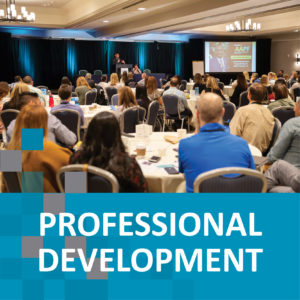Call for Presenters Open April 8
Deadline May 31 @ 5pm PDT
Welcome to the RAPSA Forum Call for Presenters submission process. Please read the guidelines and complete the form linked at the bottom of this page.
When: November 7-8, 8:00 am - 4:00 pm
Where: Coronado Marriott Resort & Spa, Coronado Island
Theme: "Bridging Futures: Fostering Equity Through Innovation and Empowerment"
Our theme for RAPSA 2024 revolves around creating pathways from schools to the workforce through effective programs and services that meet the unique needs of At-Promise students. In today's rapidly evolving world, our ability to realize this goal as educators and successfully build bridges to brighter futures for At-Promise students hinges on equitable policies, effective leadership and transformative practices. To this end, this RAPSA Forum 2024 aims to explore innovative strategies, inclusive policies, and collaborative initiatives and inspire educators, policymakers, and community leaders to work collaboratively to create pathways that empower At-Promise students and provides them with skills and abilities that they will need to thrive in school, in the workforce - and beyond.
RAPSA 2024 seeks presenters that will help us empower At-Promise students to thrive academically and emphasizes the critical role equity-focused schools can play in connecting students to the workforce by unlocking their potential and paving the way to a brighter future.
Submission Guidelines
We’re looking for submissions of 60-minute presentations from educators, researchers, policymakers, and practitioners who are actively engaged in addressing the educational needs of At-Promise students in alternative school settings.
Successful proposals will:
- align with one of the conference themes
- include a brief explanation of how your presentation will encourage interaction with attendees.
- provide evidence of success, multi-organizational strategies, and concrete examples of how the policies and/or practices are being implemented.
Benefits of Participation
- Opportunity to share expertise and contribute to the advancement of alternative education practices
- Networking opportunities with fellow professionals and stakeholders in the field
- Access to cutting-edge research, best practices, and innovative strategies
- Professional development and continuing education credits (where applicable)
We look forward to receiving your submissions and look forward to seeing you at the RAPSA Forum!
Scroll down to learn more about this year's conference themes or click here to see the proposal form.
Conference Strands
The conference seeks to explore innovative leadership practices, effective strategies, and successful interventions employed within educational settings that serve At-Promise students. Submissions should clearly align with the conference theme and address one or more of the topics of interest outlined below.
Alternative Accountability
Traditional measures of accountability often fail to accurately measure the performance of alternative schools. This strand aims to promote and advance our collective understanding of high-quality accountability systems in alternative education by exploring innovative approaches and alternative frameworks that create meaningful performance metrics for schools serving At-Promise students.
We invite proposals that address the following themes:
- Effective evaluation frameworks for alternative education programs
- Assessing student outcomes and success metrics
- Strategies for data collection and analysis
- Best practices in accountability and quality assurance
- Engaging stakeholders in accountability processes
- Addressing equity and access in alternative education
- Innovative approaches to measuring program effectiveness
- Building partnerships with employers and community organizations
- Policy implications and advocacy efforts
Policy and Advocacy
Alternative schools play an important role in providing educational opportunities for At-Promise students. This strand aims to bring together educators, researchers, policymakers, to better understand the complexities of state, local, and federal education policies that impact schools serving At-Promise students, and to share insights and effective strategy for advancing education policy, that ensures equity, access college and career pathways for At-Promise students in alternative school settings.
We invite proposals that address the following themes:
- Policy frameworks that share approaches at local, state, and federal levels supporting equity and access for At-Promise students
- Research findings and best practices in supporting opportunity youth through CTE initiatives, including mentorship, apprenticeships, and industry certifications
- Policy frameworks and legislative initiatives aimed at removing barriers and enhancing access to viable college and career pathways for At-Promise students
- Innovative approaches to successfully engaging opportunity youth in workforce development programs
- Equity-centered approaches to expanding access to high-quality CTE programs for At-Promise students
- Effective partnerships that demonstrate successful collaboration between schools, community-based organizations
- Advocacy that affects policy changes and systemic change at local, regional, and national levels, in service of more equitable distribution of resources
Leadership for Change
Non-traditional secondary schools play a pivotal role in providing alternative pathways to educational achievement and career-readiness, often offering innovative approaches to learning that cater to the unique needs of At-Promise students. At the heart of this endeavor lies leadership - teacher-leaders, principals, and system-level leaders who champion equity, inclusion, and student success through high quality-programs and services. This strand aims to connect policymakers, educators, researchers and practitioners to share insights, experiences, and innovations that promote improved outcomes for At-Promise students.
We invite proposals that address the following themes:
- Effective leadership models and practices in alternative education settings
- Strategies for fostering a positive school culture and supportive learning environments.
- Innovative curriculum design and instructional approaches tailored to the needs of At-Promise students
- Leveraging technology for personalized learning and skill development
- Collaborative partnerships with community organizations, employers, and stakeholders
- Addressing social-emotional learning and mental health needs of At Promise Students
- Engaging families and communities in the educational journey of At-Promise Students
- Data-driven decision-making for continuous improvement and accountability
- Success stories and best practices from alternative education programs
Transformative Practices
Effectively meeting the needs of At-Promise students requires a well-rounded understanding of effective teaching strategies, supportive environments, and tailored interventions. This strand aims to engage practitioners, researchers and policymakers around high-leverage instruction, student engagement, transformative pedagogy, supportive learning environments, work-based learning, and CTE that foster student engagement and drive improved educational outcomes for At-Promise students.
We invite proposals that address the following themes:
- Leveraging Technology for Enhanced Learning Experiences
- Pathways to industry certifications and credentials
- Holistic Approaches to Education for At-Promise students
- Project-Based Learning and Experiential Education
- Assessing student learning and outcomes in WBL programs
- Strategies for developing culturally responsive and inclusive curricula that meet the diverse needs of students.
- Multi-Tiered Systems of Support (MTSS) for At-Promise students
- Effective Work-Based Learning models and practices
- Mental Health and Well-being: Promoting Student Wellness
- Trauma-Informed Practices and Mental Health Support
- Integrating academic and workplace learning experiences
- Creating High-Quality Career and Technical Education (CTE) Programs for At-Promise students in alternative settings
- Personalized Learning and Individualized Instruction
Equitable Access to Workforce Development
At-Promise students/Opportunity youth, defined as young people aged 16-24 who are neither enrolled in school nor participating in the labor market, face significant barriers to accessing workforce development programs. These barriers often stem from systemic inequalities, including socioeconomic status, racial disparities, inadequate educational opportunities, and geographic location. Despite the critical role of workforce development programs in providing pathways to economic stability and social mobility, many At-Promise students/Opportunity Youth are unable to benefit from these programs due to various structural and policy-related challenges. This strand aims to convene policymakers, researchers, educators, advocates, and practitioners to explore innovative education policies that promote equitable access to workforce development programs for At-Promise students.
We invite proposals that address the following themes:
- Removing barriers to access and participation in workforce development programs for At-Promise students.
- Exploring the intersectionality of factors contributing to inequities in access to workforce development opportunities.
- Showcasing successful policy initiatives and interventions aimed at addressing these inequities.
- Examining the role of education policy in creating inclusive and supportive environments for opportunity youth.
- Fostering collaboration and networking among stakeholders committed to advancing equitable access to workforce development programs.
Other Conference Details
-
-
- Please note that those who are selected as part of this “call for presenters” are considered volunteers and are not compensated.
- Presenters consent to their images and audio included in print publications, websites, social media, and other media from SIATech, and/or RAPSA.
- Presenters must register for the conference and pay discounted fees.
- Presenters must download the Whova App and create a profile for the conference, including uploading their photo and updating their bio.
- Breakout sessions will be held on Thursday and Friday from 8:00 am to 4:00 pm, with coffee and lunch breaks in between.
- Each presenter will be able to present a slideshow with a remote to advance slides. Rooms are divided into round tables with 8 chairs each.
- Presenters are expected to bring their own materials such as printed handouts.
- Presentation slots are limited, so submit your proposal today!
-
For inquiries and further information, please contact info@rapsa.org
Important Dates
Submission Deadline: May 31 @ 5:00 pm PDT
Approval Notification: June 3
Presenter Materials Due: October 31
*If you need assistance in completing Whova uploads please reach out to info@rapsa.org to schedule a support call.

